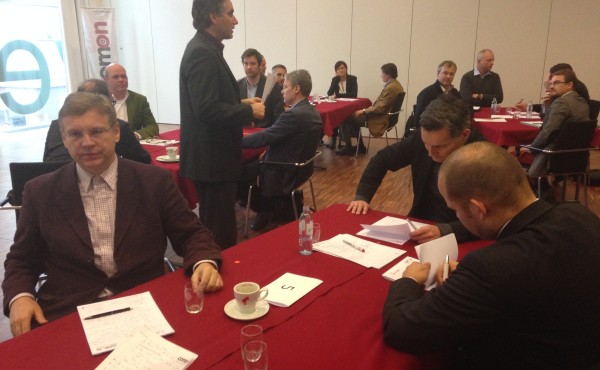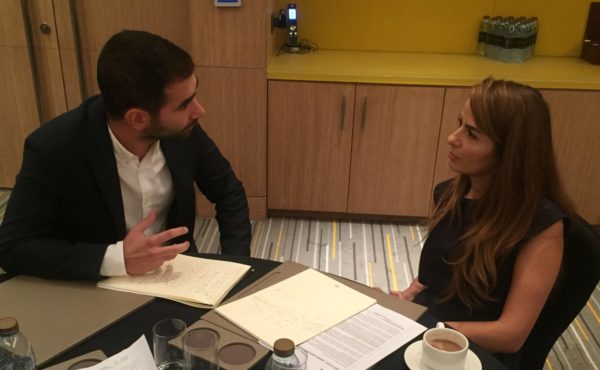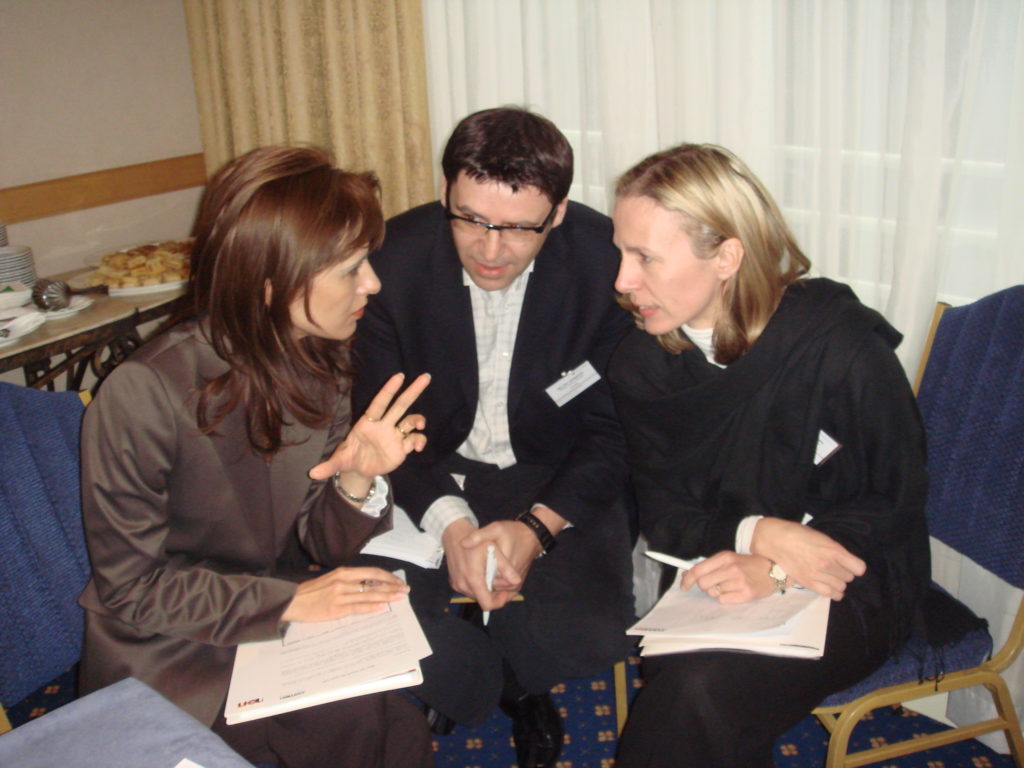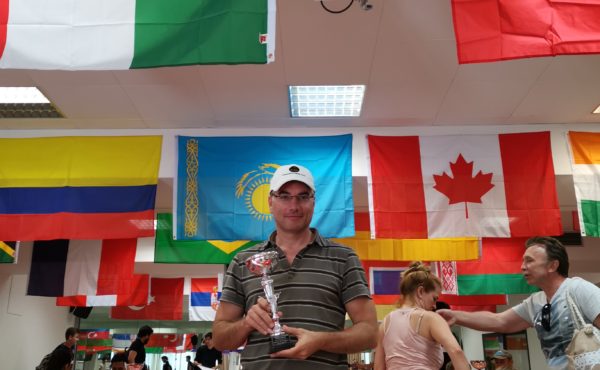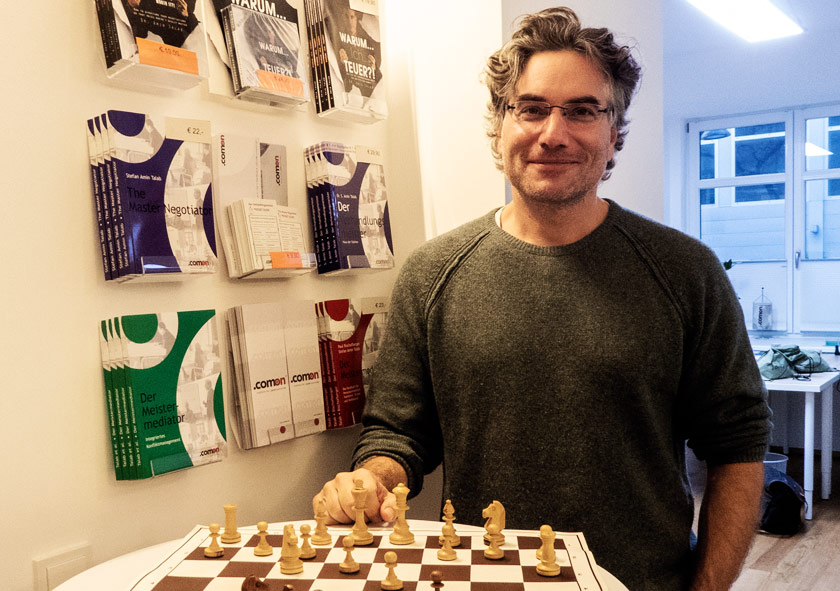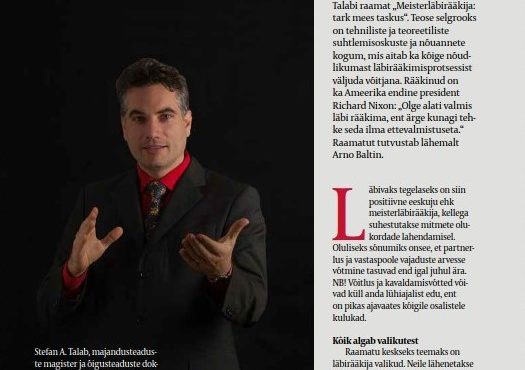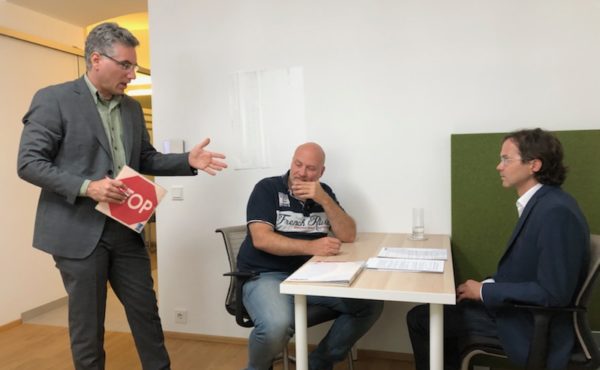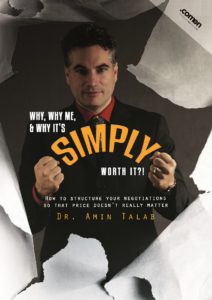Important Points To Consider When Starting Out to Improving Your Negotiating Skills
So you have decided you could profit a lot by focusing on your negotiation skills. And you are right! Whether in relationships with clients, your spouse or your boss: you can lose a lot by doing it wrong.
But how should you do it? Getting a book and read through it certainly is a good start, but what about applying? Should you hire a Coach as Negotation Joker to give you feedback and support? Or join a small and short group seminar, like the one-day Sparring or even shorter online format like AMA? Or would we recommend to continue in-house training courses like the Master Negotiator Curriculum or the Sparring Club?
The success of negotiation training, including communication, body language, conviction, negotiation or rhetoric is particularly sensitive to the way it is being taught, since the priority is not accessing and keeping knowledge, as with IT, process or compliance courses. The priority is not only knowing, but doing, i.e changing behavior and reactions in specific situations.
20+ years of experience have taught us that learning and reproducing behavior is depending mainly on the following factors:
- ACTIVITY
Basically, you need to do it yourself to learn it. Especially if the most effective way (to stress a word, or sit, or keep eye-contact, build an argument etc) seems awkward at first, you need to repeat it, so it becomes and feels natural to.
- REPETITION
I know, it´s not “sexy”, but repeating your new learned skill is essential to making it second nature.
- EMOTIONALISM
Go and practice situations you have had, might have or would likely face in your life. There is no point practicing “hostage negotiations” if you want clients to become long-term fans of yours.
- FEEDBACK
Make sure you do get sufficient feedback from a plethora of people, and a professional who is not afraid to “put his finger in the wound”. It might be great to be told you should stay like your are, but this won´t help you improve.
Actually, one can easily discern parallels with physical (muscle) training.
The Secrets Behind Effective Negotiation Training
The effect and sustainability of negotiation training, and in fact of any kind of behavioral training, is mainly determined by the layout of the learning journey and its repetition and follow-up. Tragically, this is often neglected when embarking on the learning journey.
Short but regularly
We´ve experienced that it is more effective to train shorter and more frequently, at least after an initial kick-off seminar (which should last no longer than 3 days). It also helps to use different methods (books, audio, cases, presentations, stories, video etc.), spreading them over a longer period of time.
This is the reason why we prefer working with a model called “blended learning“. This means that our seminars are structured in a way that preparation material can be watched and studied already before meeting the first time. Clarifying objectives and interests with the trainer before the seminar starts does not only save costly time at the meeting venue. Also, the learning effect is higher since more focus and time can be put into evaluating what works and what doesn´t. Formats like the AMA – Ask Me Anything should be employed heavily to achieve this effect. The advantage of repetition is that the neuronal paths can be extended and strengthened.
Small group size
A limited participant number allows to train relevant individual cases and to optimize them. It also guarantees there is time to allow for several repetitions of behavioral sequences that want to be learned. Ideally, these can be trained with differently participants and changing focus. Not only does this allow activity and looking into different negotiation types, but also increases the motivation to succeed in the face of obstacles.
Clear call for preparation
Unfortunately, this part is often neglected. Of course, the actual preparation you should be asked for depends on the specific training objective.
Let us turn to a practical example of our portfolio, the preparation we are recommending for our Negotiation Sparring:
Individual preparation time for 60-90 minutes not only secures familiarity with the topic and procedure. Also, the own negotiation case can be structured and thought through.
- Clarifying and creating awareness for the training – using a short explanatory video (2:13)
- Looking through preparatory papers explaining the process step by step .
- Recommendations to flick through our Newsletter Negotiation Insider and getting a feel for negotiation theory.
Regular invitations to rehearse and strengthen
Even the best training will be forgotten, if not regularly brought back, remembered and done.
For that reason, it should be safeguarded even before starting the training, that there are plenty of ways to continue and repeat thereafter. That can be done by a variety of measures, e.g. the Negotiation Joker or AMA Sessions. On top of that, there should be case based training, which should be repeated regularly, at least once a year.
How do I start to learn negotiating?
If you would enjoy improving your negotiation skills and you are tired of leaving money on the table but would like to improve your negotiation relationships, check out our negotiation books and Negotiation Sparring. We are happy to admit curious, new Sparrers to our Club.
What Our Participants Say
-
 Simeon Hagmüller, Bac. GVS Bullion Group
Simeon Hagmüller, Bac. GVS Bullion Group
The Sparring with Amin was very instructive and the time just flew by. The atmosphere was enjoyable and relaxed and we could focus in on the practice. I learned a lot, not only, but also from the failings of the other participants. Amin showed us different walkthroughs, which we also trained. Refreshingly, he always stayed realistic and also pointed out limits of negotiations - I really like that. All in all I recommend Sparring to everyone, who is willing to work on himself. I only wish we would have had more time together.
Read more
-
 Mag. Bernd Allmer Helvetia Versicherungen AG
Mag. Bernd Allmer Helvetia Versicherungen AG
Das war ein wirklich außergewöhnliches Training und hat viel gebracht und auch noch Spaß gemacht. Auch die kleine Gruppengröße ist ideal fürs Sparring.
Learn more
-
 Dr. Eike Lindinger Rechtsanwalt
Dr. Eike Lindinger Rechtsanwalt
Das Verhandlungssparring ist aufgrund der beschränkten Teilnehmerzahl und der unterschiedlichsten mit rhetorischem Leben auszufüllenden Sachverhalte eine sehr gute Gelegenheit, in sein wichtigstes Werkzeug – die Sprache und damit Kommunikation – zu investieren. [...] Das situative Zerhacken eines Gespräches sowie laufend neue Ansätze mit anderer Wortwahl wird von Ihnen hervorragend vorgezeigt, ebenso, wie durch geschickte Wortwahl bzw. das Weglassen von „Ballast“ von einer Defensivposition ausgehend, ein offensiver Schlagabtausch gelingt - und natürlich auch umgekehrt, sodass die Stunden wie im Flug vergangen sind. Gerade die direkte Ansprache/Analyse im Sinne der Schwächen / der Stärken in so kurzer Zeit ist unheimlich wertvoll.
Learn more
Reserve your Sparring Spot here.

